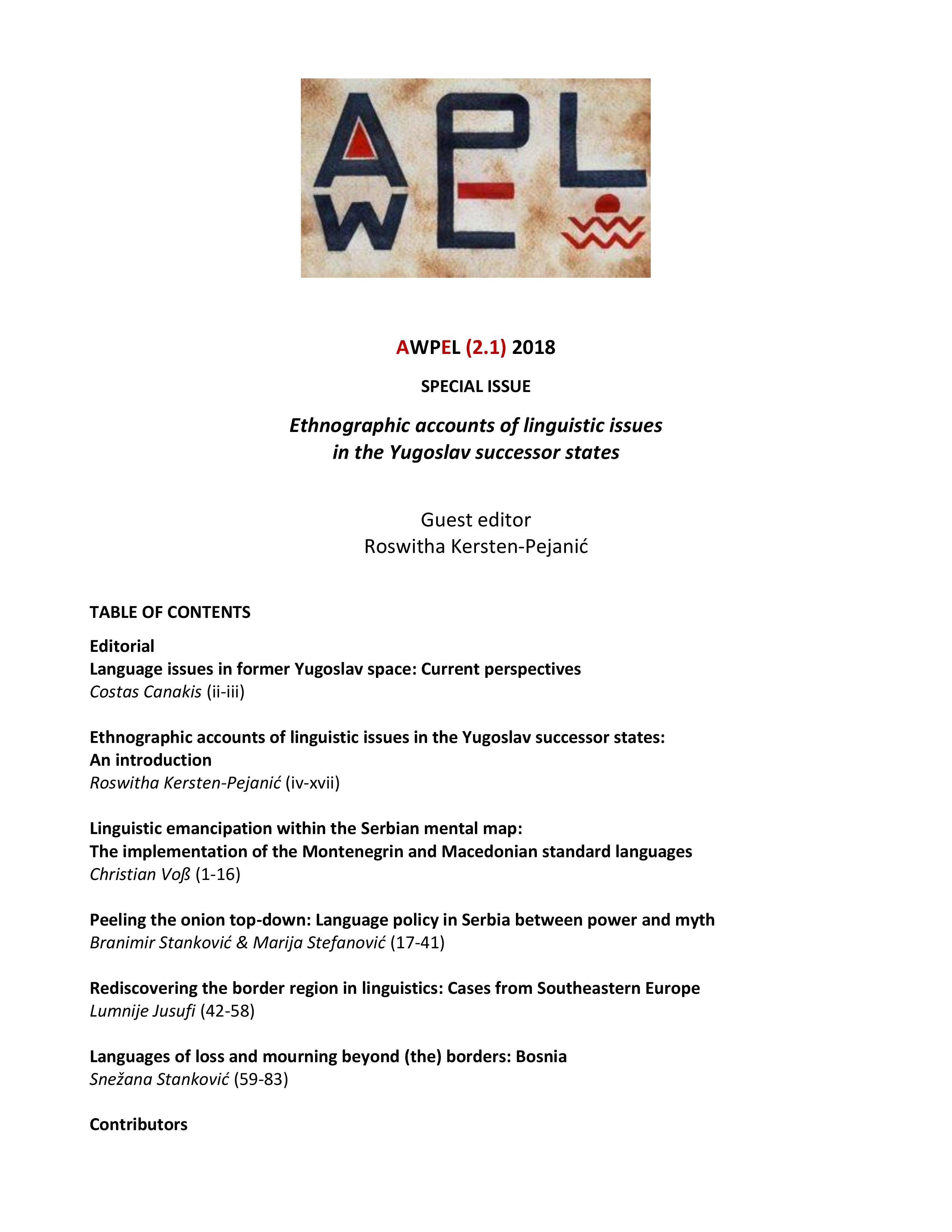Peeling the onion top-down: Language policy in Serbia between power and myth
Περίληψη
This paper considers the issue of language policy and planning in Serbia, as managed by the main competent institution, the Serbian Language Standardization Committee, a trans-state, national institution dealing with vital issues of language policy and planning. Specifically, assuming a Bourdieusian perspective, it investigates the ideology behind the Committee’s policies, grounded in a series of language myths, and the way these policies influence professionals and everyday language users. The effects of a rigid, strict educational system and a standard language culture by educators are shown in detail focusing on the Torlak dialect in Southern Serbia. The Serbian case reveals a constant promotion of censorship and a heightened understanding of the benefits of self-censorship in the language market. This can be seen in the pressure exerted on certain speakers and the threat their mother tongue represents for their status in the labor market.
Λεπτομέρειες άρθρου
- Πώς να δημιουργήσετε Αναφορές
-
Stanković, B., & Stefanović, M. (2019). Peeling the onion top-down: Language policy in Serbia between power and myth. Aegean Working Papers in Ethnographic Linguistics, 2(1), 17–41. https://doi.org/10.12681/awpel.20022
- Ενότητα
- Άρθρα

Αυτή η εργασία είναι αδειοδοτημένη υπό το CC Αναφορά Δημιουργού 4.0.
Οι συγγραφείς θα πρέπει να είναι σύμφωνοι με τα παρακάτω:
Οι συγγραφείς των άρθρων που δημοσιεύονται στο περιοδικό διατηρούν τα δικαιώματα πνευματικής ιδιοκτησίας επί των άρθρων τους, δίνοντας στο περιοδικό το δικαίωμα της πρώτης δημοσίευσης. Άρθρα που δημοσιεύονται στο περιοδικό διατίθενται με άδεια Creative Commons 4.0 και σύμφωνα με την οποία μπορούν να χρησιμοποιούνται ελεύθερα, με αναφορά στο/στη συγγραφέα και στην πρώτη δημοσίευση.



